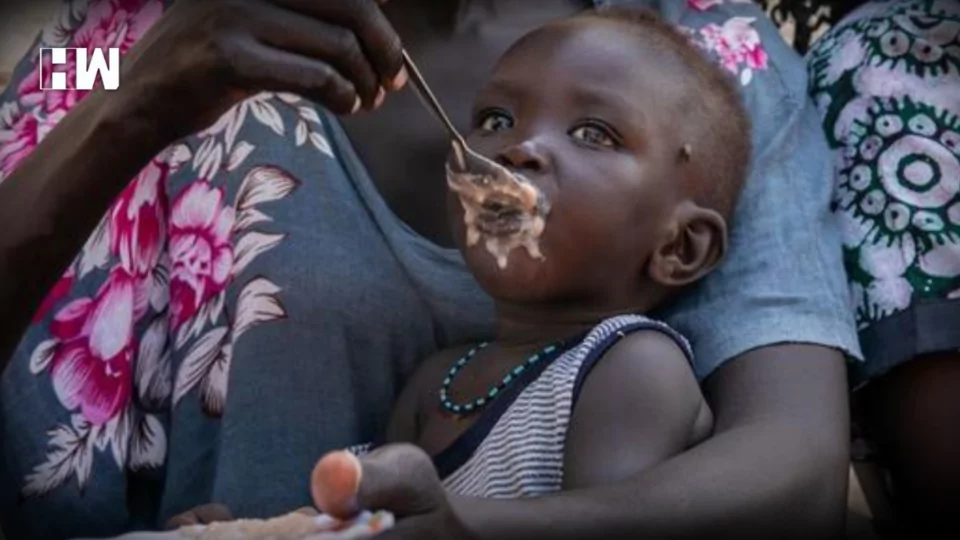Progress on the 2018 peace agreement for South Sudan has been “extremely slow”, UN human rights experts said on Wednesday, calling for urgent action to save lives.
The appeal by the members of the UN Commission on Human Rights in South Sudan follows a visit to Ethiopia where they urged African countries, and other stakeholders, to renew support for the deal’s implementation.
Concluding meetings at the African Union headquarters, the UN Commission on Human Rights in South Sudan calls for urgent action on the peace agreement for South Sudan
See press release  https://t.co/LdhNAlrbT0 https://t.co/eyyIktOGxO
https://t.co/LdhNAlrbT0 https://t.co/eyyIktOGxO
UNCHRSS
They said the conflict in South Sudan has become increasingly complex but the level of suffering for millions of civilians remains intolerable.
Time and lives lost
The Commission was in Addis Ababa from 12 to 18 October for meetings with the Africa Union (AU) and the Inter-Governmental Authority on Development (IGAD), as well as the diplomatic corps, the UN, civil society, and others.
“Every new extension of the timelines for implementation of the peace agreement, and indeed every passing day of inaction, means not just time lost, but lives lost,” Commissioner Barney Afako warned during the visit.
South Sudan’s President Salva Kiir and his former Vice-President Riek Machar signed the Revitalized Peace Agreement in September 2018 in a bid to end bitter fighting that has plagued the young nation.
However, the Commission statement noted that “progress has been extremely slow” in implementing the deal.
Deadlines and disputes
The accord provides for a Hybrid Court, a Commission for Truth, Reconciliation and Healing (CTRH) and a reparations process which should have been established more than two years ago.
Furthermore, core aspects of the agreement, including the unification of security forces, have been hampered by persistent dispute over the allocation of ratios of representation and resources.
The parties have also consistently failed to meet deadlines set for critical reforms, and the establishment of the transitional justice bodies, without any credible justification.
“South Sudan’s peace process cannot implement itself; the people of South Sudan whose lives depend on it, want to see more energy expended on breathing life into this document,” said Yasmin Sooka, the Commission Chair.
Call for action
She stressed that the African Union must take the next steps necessary to establish the Hybrid Court and support the Truth Commission and the other processes.
“At present South Sudan is a haven for those who commit the most atrocious violence,” said Ms. Sooka.
“As a result, nearly nine million South Sudanese still need humanitarian assistance to survive. That’s a staggering three quarters of the population. People are being killed, maimed, raped and made homeless and we know from other countries that a credible truth and justice process is the only way to stop this.”
During their meetings, the UN Commissioners emphasised that the South Sudanese people are deeply disappointed with “the disjointed and piecemeal progress” on key provisions of the accord.
Results are needed
Critical areas that need to be completed include national consultations towards the establishment of the truth commission, and a path that leads to a permanent Constitution.
“Those we met, understood that the Government of South Sudan should clearly articulate what it can realistically achieve over the period of the extension of the peace agreement,” said Commissioner Andrew Clapham.
“We must avoid a situation where we return to the drawing board in two years with no meaningful results to show the people of South Sudan.”
About the Commission
The UN Commission on Human Rights in South Sudan was appointed by the UN Human Rights Council in Geneva.
The independent body was first established in March 2016, and its mandate has since been renewed each year.
Members are not UN staff and they are not paid for their work.
As an independent media platform, we do not take advertisements from governments and corporate houses. It is you, our readers, who have supported us on our journey to do honest and unbiased journalism. Please contribute, so that we can continue to do the same in future.

